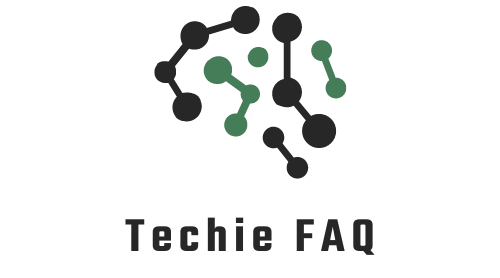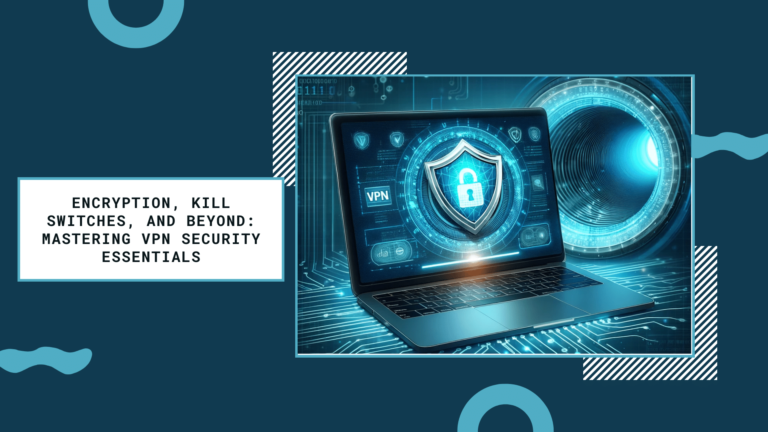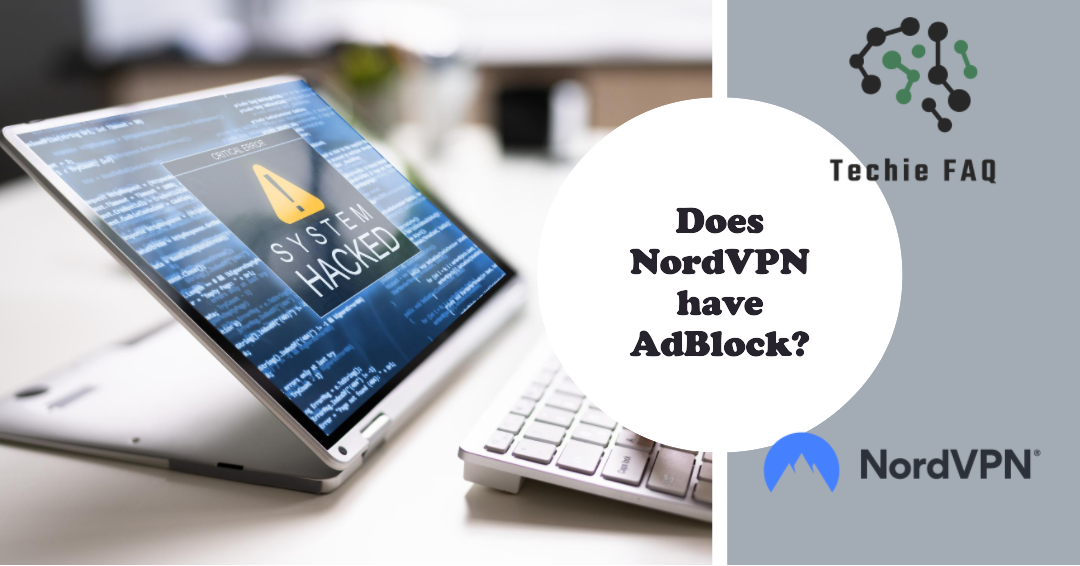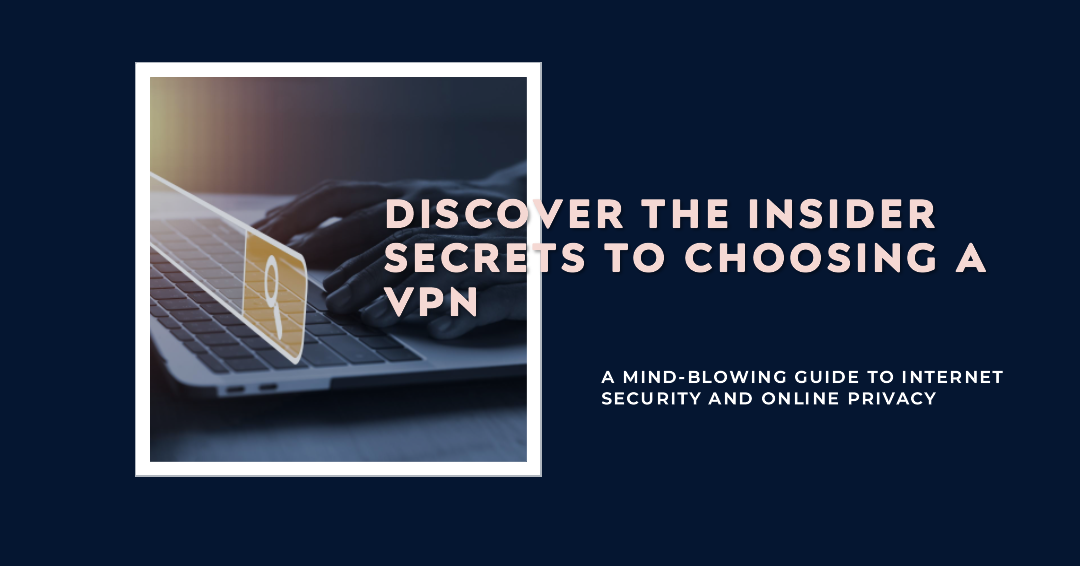Introduction
The Rising Importance of Virtual Private Networks (VPNs)
In the modern digital landscape, where data breaches and online surveillance are growing concerns, the significance of Virtual Private Networks (VPNs) has never been more pronounced.
VPNs serve as essential tools in the quest for online privacy and security, offering users a way to safeguard their internet activity from prying eyes. This introduction aims to explore the vital role of VPNs in enhancing online security and why understanding their security features is crucial for users across the globe.
How VPNs Enhance Online Privacy
VPNs provide a secure connection over the internet by encrypting user data and routing it through remote servers. This process masks users’ real IP addresses, making it difficult for hackers, government agencies, or even Internet Service Providers (ISP) to track online activities.
In an age where personal data can be easily exploited for various purposes, VPNs stand as a barrier, ensuring that users’ online footprint remains confidential and their sensitive information stays protected.
The Role of VPNs in Data Protection
Beyond privacy, VPNs are instrumental in protecting data from cyber threats. Whether it’s for personal use or within a corporate setting, VPNs create a secure tunnel for data transmission, significantly reducing the risk of cyber attacks such as hacking, phishing, or malware.
Especially for remote workers and digital nomads, VPNs are vital in ensuring that their mobile connections to company networks are secure, thereby safeguarding both personal and organizational data. Discover our choice of VPN solutions that cater to the unique needs of digital nomads, ensuring secure and reliable connections regardless of location.
Understanding VPN Security
The Mechanics of VPN Security
At the core of a VPN’s ability to secure data is its use of encryption and secure tunneling protocols. When a user connects to a VPN, their data is sent through an encrypted tunnel, effectively turning readable information into a complex code that is nearly impossible to decipher without the correct decryption key. This process ensures that even if the data is intercepted, it remains unintelligible to unauthorized parties.
Encryption: The First Line of Defense
Encryption is the cornerstone of VPN security. The most advanced VPNs utilize the Advanced Encryption Standard (AES-256), a sophisticated algorithm that offers the highest level of encryption currently available. Originally developed for government use, AES-256 is now the industry standard for data encryption and is trusted worldwide for its robustness and resistance to brute-force attacks.
Secure Tunneling Protocols: Strengthening the Barrier
Alongside encryption, VPNs employ various tunneling protocols to create a secure path over the internet. These protocols, such as OpenVPN, IPsec, and WireGuard, are responsible for the safe transmission of data between the user’s device and the VPN server. Each protocol has its unique strengths, offering different levels of security and speed, allowing users to choose the one that best suits their needs.
Robust Data Encryption
The Role of AES-256 in VPNs
One of the most significant features of a VPN is its use of the Advanced Encryption Standard (AES-256) for data protection. This encryption algorithm is renowned for its complexity and strength, making it virtually unbreakable. It’s the same standard used by governments and security agencies worldwide to protect highly sensitive information. In the context of VPNs, AES-256 ensures that all data transferred through the VPN tunnel remains confidential and secure from potential threats.
How AES-256 Encryption Works
AES-256 encryption works by scrambling data into an unreadable format using a 256-bit key. This key size provides a colossal number of possible combinations (over 1.1 x 10^77), making it an arduous task for even the most powerful computers to crack through brute-force methods. When you connect to a VPN that uses AES-256, your data is encrypted before it leaves your device, and it remains encrypted until it reaches its destination, ensuring that it cannot be read or tampered with during transit.
Ensuring End-to-End Security
The effectiveness of AES-256 lies in its end-to-end encryption capability. When data is encrypted on your device, it stays encrypted as it travels across the internet and is only decrypted when it reaches the VPN server or your intended recipient. This process ensures that your data remains secure throughout its journey, protecting it from various cyber threats like eavesdropping, man-in-the-middle attacks, and data interception.
No IP Address Leaks
The Importance of Concealing IP Addresses
One of the primary functions of a VPN is to mask your real IP address, enhancing your online privacy and anonymity. Your IP address can reveal a lot about you, including your location and browsing habits. By hiding it, a VPN helps prevent websites, advertisers, and potential attackers from associating your online activities with your identity.
Causes and Prevention of IP Leaks
IP leaks occur when your VPN fails to fully conceal your actual IP address, exposing your online identity and location. These leaks often arise due to compatibility issues between different internet protocols, like IPv4 and IPv6. To combat this, top-tier VPN providers implement measures such as disabling IPv6 traffic, ensuring that all your internet activities are routed exclusively through the VPN’s secure tunnel, effectively preventing any IP leakage.
Continuous Monitoring for Enhanced Protection
To maintain the highest level of security, it’s crucial for VPN services to continuously monitor and update their systems to address any potential vulnerabilities that could lead to IP leaks. Users can also perform regular VPN tests to ensure their real IP address remains hidden during their online sessions. These practices contribute to a robust security environment, safeguarding users’ privacy and data integrity.
DNS Leak Protection
Understanding DNS and Privacy Risks
The Domain Name System (DNS) is a critical component of internet infrastructure, translating human-readable domain names (like ‘example.com’) into IP addresses that computers use. However, this process can expose your browsing activities. Even if your VPN effectively hides your IP address, DNS requests can still reveal your internet activity and location if they are sent through your ISP’s DNS servers instead of the VPN’s.
Preventing DNS Leaks with VPNs
A well-designed VPN service incorporates its own DNS servers to handle all DNS requests. This integration ensures that all your internet queries remain within the encrypted VPN tunnel, preventing any possibility of DNS leaks. By using VPN-provided DNS servers, your browsing activities and the sites you visit remain hidden from outside observers, including ISPs and potential eavesdroppers.
Testing for DNS Leak Protection
To ensure that your VPN is effectively protecting against DNS leaks, conducting regular VPN tests is essential. These tests can verify that your DNS queries are not being exposed to external parties. Users should seek VPN providers that offer comprehensive testing tools and transparently address the potential for DNS leaks, thus providing an additional layer of assurance regarding their online privacy and security.
The Role of Kill Switches
Kill Switch: A Crucial Safety Net
The Kill Switch feature in VPNs plays a pivotal role in ensuring continuous privacy and security. It acts as a safety net that instantly cuts off your device’s internet connection if the VPN connection drops unexpectedly. This precaution is vital because even a brief disconnection from the VPN can expose your real IP address and leave your data unprotected.
How the Kill Switch Works
When enabled, the Kill Switch monitors your VPN connection for any changes in status. If it detects a drop in the VPN connection, it immediately blocks all internet traffic to and from your device. This action ensures that no data is transmitted over an unsecured connection, effectively preventing any accidental exposure of your online activities.
Re-establishing Secure Connections
After activating the Kill Switch, your internet access remains disabled until a secure VPN connection is re-established or you manually disconnect from the VPN. This feature is particularly important for users who frequently switch between different networks or those with unstable internet connections. By employing a Kill Switch, VPN users can have peace of mind knowing their privacy and security are safeguarded even in the event of VPN disconnections.
Multi-Factor Authentication
Enhancing VPN Security with MFA
Multi-factor authentication (MFA) is an additional security layer that VPN providers can offer to enhance user security. MFA requires users to provide two or more verification factors to gain access to the VPN, significantly reducing the risk of unauthorized access. This feature is particularly important as it adds an extra barrier against various cyber threats, including phishing and malware.
The Mechanics of MFA in VPNs
In the context of VPNs, MFA may involve something you know (like a password or PIN), something you have (like a smartphone or a security token), or something you are (like a fingerprint or facial recognition). When you log into your VPN, you’re prompted to provide these multiple forms of identification. Only after successfully presenting all required factors can you access the VPN services.
Protecting Against Data Breaches
The implementation of MFA is a testament to a VPN provider’s commitment to user security. It ensures that even if one authentication factor, such as a password, is compromised, unauthorized individuals still cannot access the VPN without the additional factors. This multi-layered approach is crucial for protecting sensitive data and maintaining user privacy, especially in a landscape where cyber threats are becoming increasingly sophisticated.
VPNs and Access Control
Access Control: A Key Feature of VPNs
Access control is a fundamental aspect of VPN functionality, especially in corporate environments. VPNs allow organizations to control and manage user access to sensitive data and internal resources. By setting up a VPN, companies can create secure and private channels for employees to access necessary information, ensuring that only authorized individuals have access to specific data or systems.
How VPNs Facilitate Access Control
In practical terms, access control via VPNs works by segmenting network access. For example, a company might set up multiple VPNs, each providing access to different parts of the network or different sets of resources. Employees are then given access to specific VPNs based on their role and the data they need for their work. This approach not only secures the data but also simplifies management by clearly defining access levels.
VPNs as a Tool for Secure Remote Access
With the rise of remote work, VPNs have become even more crucial for access control. They enable remote employees to securely connect to company networks as if they were physically present in the office. This secure connection is vital for maintaining the integrity and confidentiality of corporate data, as it protects against potential breaches that could occur if employees were accessing sensitive information over unsecured networks.
Challenges and Limitations of VPN Security
Addressing VPN Vulnerabilities
While VPNs offer robust security features, they are not immune to challenges and limitations. One key concern is the potential vulnerability to certain types of cyber attacks, such as endpoint attacks, where hackers target the user’s device rather than the VPN itself. Additionally, the strength of a VPN’s security largely depends on the protocols and encryption standards it uses, which can vary significantly among providers.
Balancing Security with Performance
Another challenge faced by VPNs is the balance between security and performance. High levels of encryption and complex protocols, while providing better security, can also lead to slower connection speeds. Users often need to find a balance between optimal security measures and acceptable performance, especially when using VPNs for data-intensive activities like streaming or downloading large files.
The Evolving Landscape of Cyber Threats
The landscape of cyber threats is constantly evolving, and VPN providers must continuously update and improve their security features to keep pace. This includes staying abreast of the latest encryption technologies, regularly updating software, and educating users about best practices for VPN usage. Keeping up with these advancements is crucial for VPNs to remain effective against new and emerging security threats.
Choosing a Secure VPN
Key Factors in Selecting a VPN
When selecting a VPN for security purposes, several critical factors must be considered. Firstly, the strength of the encryption provided is paramount. Look for VPNs that offer AES-256 encryption, which is currently the gold standard.
Secondly, the choice of tunneling protocols can greatly impact the security and speed of your VPN connection. Protocols like OpenVPN and WireGuard are known for providing a good balance of security and performance.
The Importance of a Trustworthy VPN Provider
The credibility of the VPN provider is another crucial factor. A trustworthy provider should have a transparent privacy policy, a no-logs policy, and a proven track record of safeguarding user data. It’s also beneficial to choose a provider that undergoes regular independent audits to verify its security claims and practices.
To make an informed decision about which VPN to choose, dive into our detailed guide revealing insider secrets on choosing a VPN.
Additional Security Features
Additional features to look for include a Kill Switch, DNS leak protection, and multi-factor authentication. These features provide extra layers of security, ensuring that your data remains protected even if the VPN connection drops or other vulnerabilities are exploited. Furthermore, the ability to test for IP and DNS leaks can give users peace of mind about the effectiveness of their VPN.
Best Practices for VPN Security
Regularly Update VPN Software
One of the fundamental best practices for maintaining VPN security is to keep the VPN software updated. Regular updates often include patches for newly discovered vulnerabilities, enhancements to encryption protocols, and improvements in overall performance. Neglecting software updates can leave the VPN, and consequently the user’s data, susceptible to security breaches.
Use Strong Authentication Methods
It’s crucial to use strong, unique passwords and enable multi-factor authentication (MFA) for VPN access. MFA adds an additional layer of security by requiring more than just a password to log in. This practice significantly reduces the risk of unauthorized access, even if a password is compromised.
Be Cautious on Public Wi-Fi
When using a VPN on public Wi-Fi networks, extra caution is necessary. These networks are often unsecured and can be hotbeds for cyber threats. Always ensure that your VPN is active and properly configured before transmitting any sensitive data over public Wi-Fi.
Regularly Test for Leaks
Conducting regular tests for IP and DNS leaks is essential to ensure that the VPN is effectively protecting your online activities. Many VPN providers offer built-in tools to perform these tests, making it easier for users to verify their VPN’s security.
Stay Informed About Security Trends
Finally, staying informed about the latest developments in cybersecurity can greatly enhance your VPN’s effectiveness. This includes understanding emerging threats, being aware of new security technologies, and adapting usage patterns to stay ahead of potential risks.
Future of VPN Security
Emerging Trends in VPN Technology
The future of VPN security is likely to be shaped by several emerging trends. One such trend is the increasing adoption of WireGuard, a newer VPN protocol known for its simplicity and high-speed performance while maintaining strong security.
Additionally, the integration of artificial intelligence (AI) and machine learning (ML) in VPNs could lead to smarter, more adaptive security measures that can automatically detect and respond to threats.
The Evolution of Encryption Standards
As computational power continues to grow, we may see the development and adoption of even more robust encryption standards beyond AES-256. Quantum-resistant encryption is one area of research that is gaining attention, as it aims to create encryption methods that can withstand attacks from quantum computers, which could potentially break current encryption algorithms.
The Role of VPNs in an Increasingly Remote World
The shift towards remote work and the proliferation of IoT devices are also likely to influence the evolution of VPNs. VPN providers may need to focus more on offering scalable, easy-to-manage solutions that can cater to a distributed workforce and a multitude of connected devices, ensuring secure and private connections in a variety of settings.
The Importance of User Education and Awareness
Finally, the role of user education and awareness in VPN security cannot be overstated. As the technology evolves, users must stay informed about best practices for VPN usage and the importance of maintaining their privacy and security online. This knowledge is crucial in empowering users to make the most of VPN technologies and protect themselves in an ever-changing digital landscape.
Conclusion
Summarizing the Significance of VPN Security
The importance of VPNs in today’s digital era cannot be overstated. From providing robust data encryption and preventing IP and DNS leaks to offering features like Kill Switches and multi-factor authentication, VPNs play a crucial role in safeguarding online privacy and security. As cyber threats continue to evolve, the need for effective and reliable VPN solutions becomes increasingly vital for individuals and businesses alike.
The Responsibility of Users and Providers
While VPN providers must ensure the highest standards of security and regularly update their services to counter emerging threats, users also have a responsibility. Staying informed about best practices, regularly updating software, and being cautious in online environments are key steps users can take to enhance their security when using VPNs.
Looking Forward to a Secure Digital Future
As we look to the future, the continuous advancement of VPN technologies, alongside user education and awareness, will be pivotal in maintaining a secure and private digital space. By understanding and utilizing the security features of VPNs, users can confidently navigate the online world, knowing their data is protected.
- What is the most secure encryption standard for VPNs? AES-256 (Advanced Encryption Standard with a 256-bit key) is currently considered the most secure encryption standard for VPNs, offering a high level of security against brute-force attacks.
- Can a VPN protect against all types of cyber threats? While VPNs provide robust protection against many types of cyber threats, they are not a complete solution. Users should also employ other security measures, such as antivirus software, firewalls, and practicing safe browsing habits.
- What is a VPN Kill Switch and why is it important? A VPN Kill Switch is a feature that immediately disconnects your device from the internet if the VPN connection drops, preventing your real IP address and data from being exposed. It’s important for maintaining privacy and security, especially in unstable network environments.
- How does multi-factor authentication enhance VPN security? Multi-factor authentication (MFA) enhances VPN security by requiring multiple forms of verification (like a password and a mobile verification code) to access the VPN. This makes it much harder for unauthorized users to gain access, even if they have your password.
- Are VPNs necessary for secure remote work? VPNs are highly recommended for secure remote work as they encrypt data transmission and provide secure access to company networks, protecting sensitive corporate data from potential cyber threats associated with unsecured public networks.





